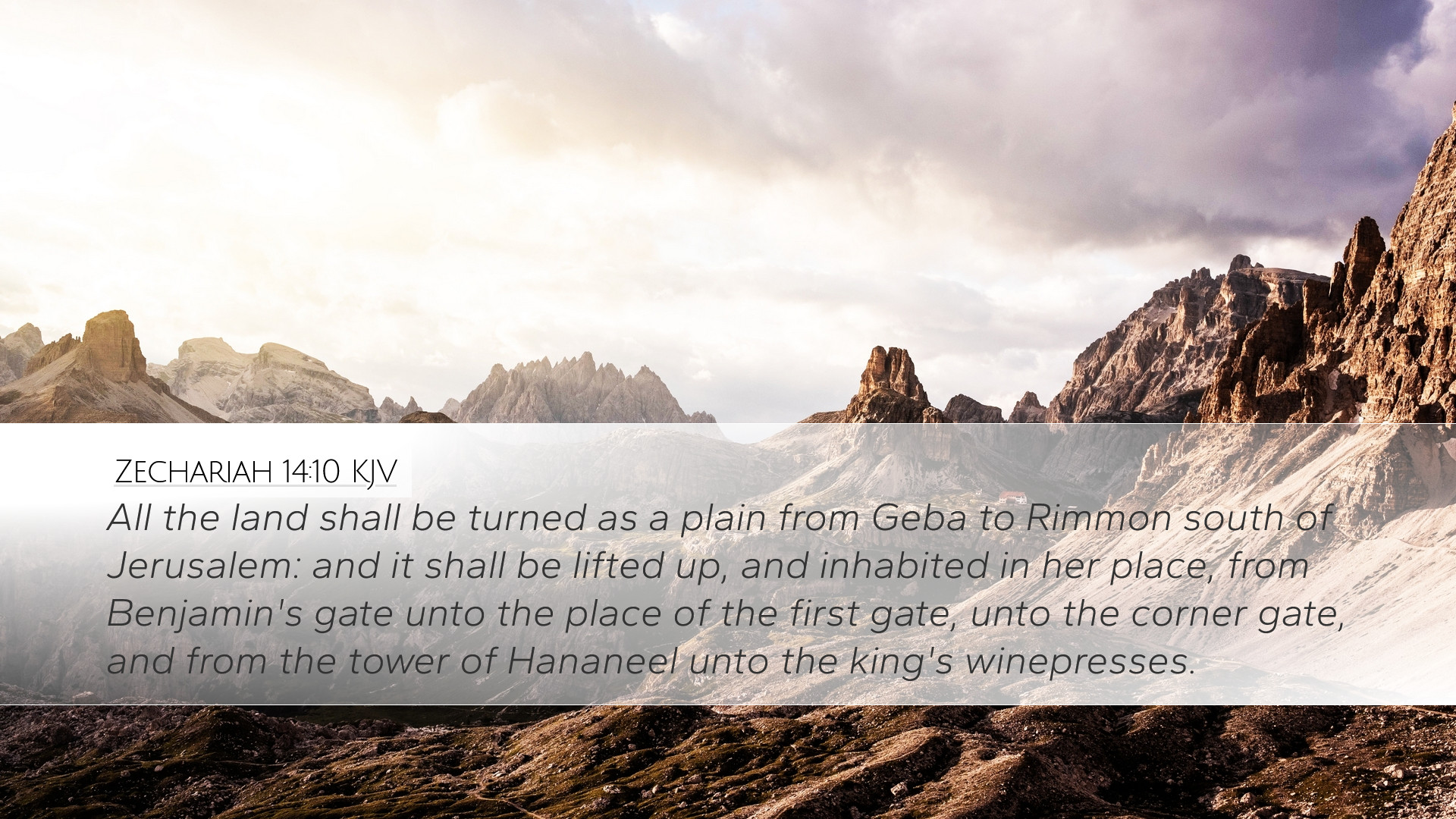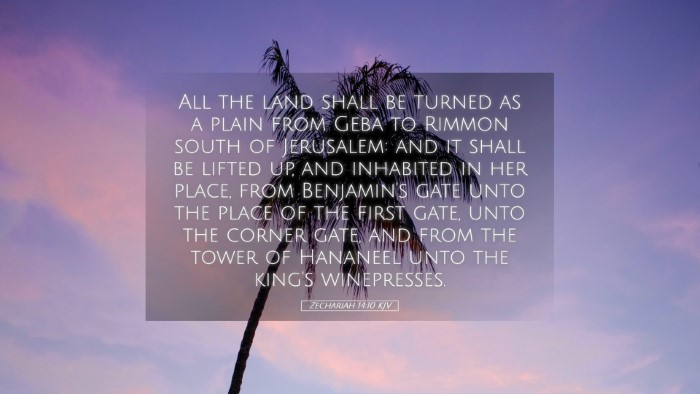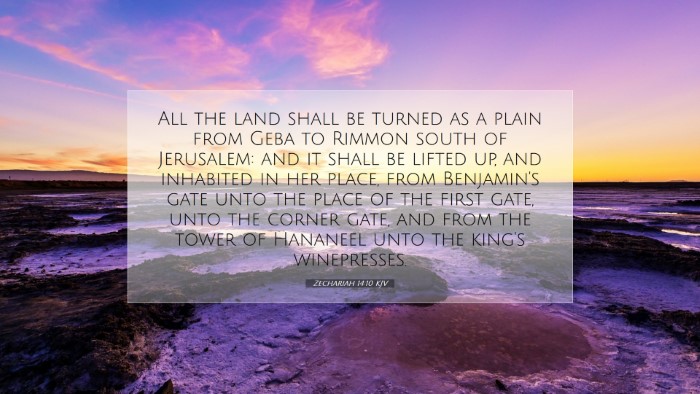Commentary on Zechariah 14:10
Verse: "All the land shall be turned as a plain from Geba to Rimmon south of Jerusalem: and it shall be lifted up, and inhabited in her place, from Benjamin's gate unto the place of the first gate, unto the corner gate, and from the tower of Hananeel unto the king's winepresses."
Introduction
The verse from Zechariah 14:10 presents a prophetic picture of the transformation of the land surrounding Jerusalem. This passage is pivotal in understanding not only the eschatological implications concerning the future of Israel but also the theological significance of Zion as the center of God's divine plan. Various commentators provide rich insights into the implications of this transformation, as well as the geographical and symbolic meanings of the terms used.
Geographical Context
Matthew Henry remarks on the geographical implications, explaining that the references to Geba and Rimmon signify a transformation in the topography of the land. These locations are significant as they map Israel's territorial boundaries.
- Geba: A city situated in the north-central part of Judah
- Rimmon: Formerly a city of refuge, located further south.
This geographical mapping indicates not only a physical change but also suggests a spiritual revitalization of the land, which is often a metaphor for divine favor and restoration.
Theological Significance
Albert Barnes offers insight into the theological implications of this transformation, noting that the land being made a plain signifies a leveling or preparation for the Lord's reign. This imagery of elevation and habitation signifies God's ultimate sovereignty in establishing His kingdom on earth.
The notion that “it shall be lifted up” symbolizes an exaltation of the people of God and a calling to a new spiritual height. In theological terms, this hints at the New Jerusalem and the ultimate restoration of creation where God's presence dwells among His people.
Symbolism in the Transformation
Adam Clarke elaborates on the symbolic language used in this prophetic passage. The transformation of Jerusalem's topography is indicative of the radical changes that will accompany the end times.
- Spiritual Renewal: The mountain-like elevation suggests a new era of holiness and proximity to God.
- Inhabitation: The mention of the land being "inhabited in her place" implies a return to divine perfection and communion.
Clarke emphasizes the anticipation of divine visitation and the promise of God restoring the covenant relationship with His people.
Understanding the Implications for Israel
The implications of this passage extend beyond mere geographic change. It speaks to the hope of restoration for the nation of Israel. Matthew Henry comments on the promise of restoration as a source of comfort for the exiles returning from Babylon, and how this shift denotes a permanent divine establishment of Jerusalem.
This is not just a physical promise but echoes a broader Christian theological perspective: the hope of salvation and redemption through Christ, who embodies the ultimate fulfillment of these prophetic declarations.
Conclusion
As pastors, students, theologians, and Bible scholars study Zechariah 14:10, they should take note of the multifaceted implications arising from the text. The merging of geographical significance with profound theological truths invites a deeper understanding about God's plan for restoration, not only for Israel but for all creation.
Commentators like Henry, Barnes, and Clarke serve to remind us that the prophetic Scriptures are alive and call us toward an anticipation of God's kingdom that transcends time and invites our faithful participation in His redemptive work.


